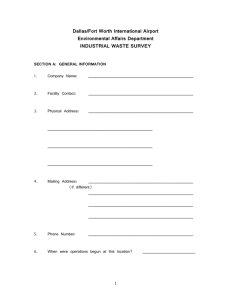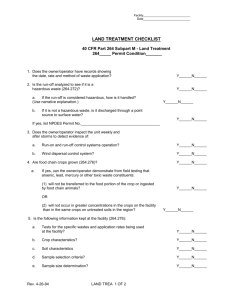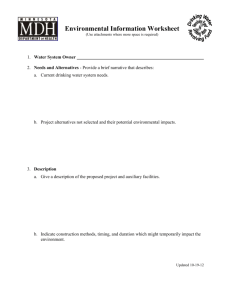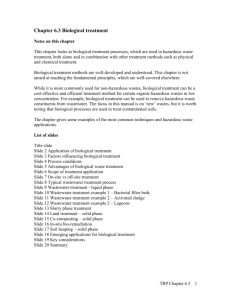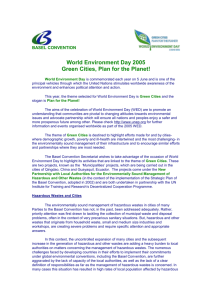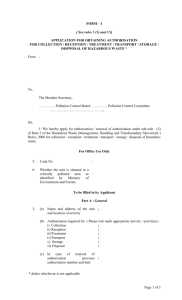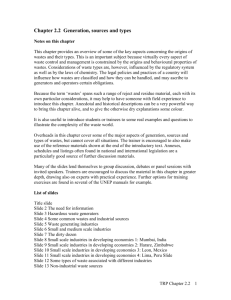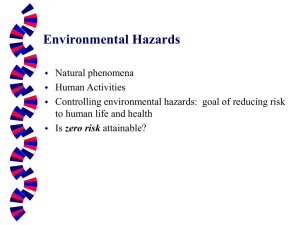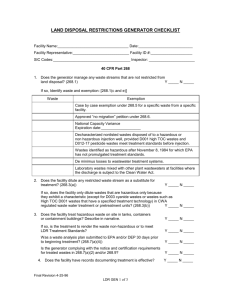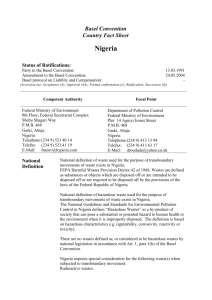Draft Strategic Framework 2012–2021 for the implementation of the
advertisement
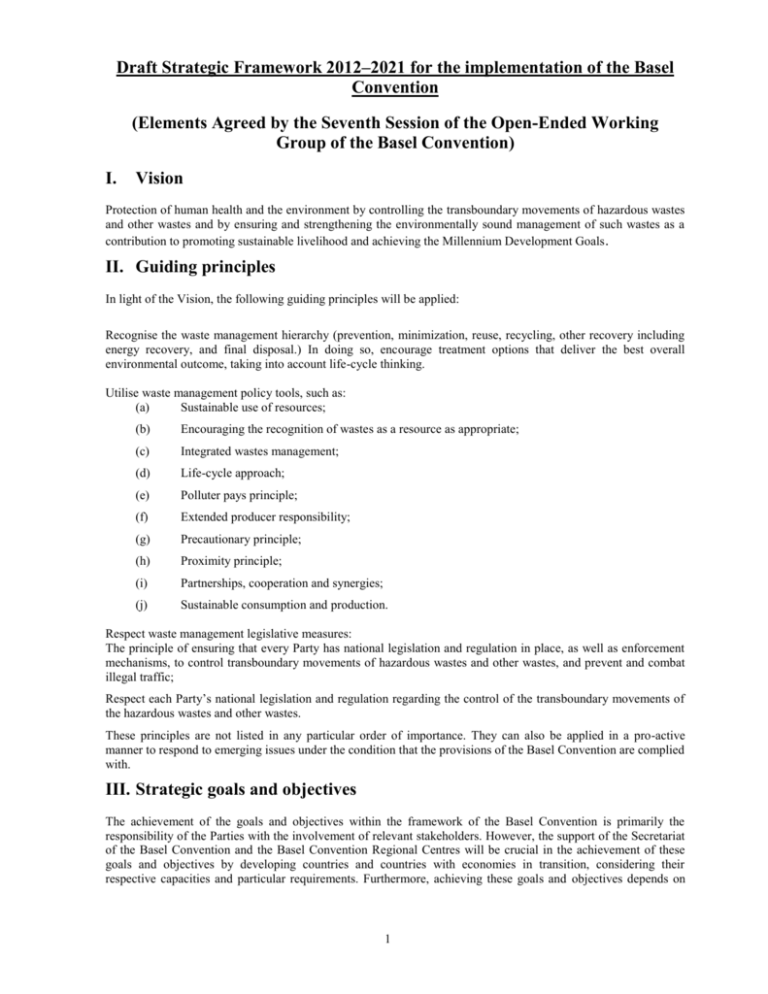
Draft Strategic Framework 2012–2021 for the implementation of the Basel Convention (Elements Agreed by the Seventh Session of the Open-Ended Working Group of the Basel Convention) I. Vision Protection of human health and the environment by controlling the transboundary movements of hazardous wastes and other wastes and by ensuring and strengthening the environmentally sound management of such wastes as a contribution to promoting sustainable livelihood and achieving the Millennium Development Goals . II. Guiding principles In light of the Vision, the following guiding principles will be applied: Recognise the waste management hierarchy (prevention, minimization, reuse, recycling, other recovery including energy recovery, and final disposal.) In doing so, encourage treatment options that deliver the best overall environmental outcome, taking into account life-cycle thinking. Utilise waste management policy tools, such as: (a) Sustainable use of resources; (b) Encouraging the recognition of wastes as a resource as appropriate; (c) Integrated wastes management; (d) Life-cycle approach; (e) Polluter pays principle; (f) Extended producer responsibility; (g) Precautionary principle; (h) Proximity principle; (i) Partnerships, cooperation and synergies; (j) Sustainable consumption and production. Respect waste management legislative measures: The principle of ensuring that every Party has national legislation and regulation in place, as well as enforcement mechanisms, to control transboundary movements of hazardous wastes and other wastes, and prevent and combat illegal traffic; Respect each Party’s national legislation and regulation regarding the control of the transboundary movements of the hazardous wastes and other wastes. These principles are not listed in any particular order of importance. They can also be applied in a pro-active manner to respond to emerging issues under the condition that the provisions of the Basel Convention are complied with. III. Strategic goals and objectives The achievement of the goals and objectives within the framework of the Basel Convention is primarily the responsibility of the Parties with the involvement of relevant stakeholders. However, the support of the Secretariat of the Basel Convention and the Basel Convention Regional Centres will be crucial in the achievement of these goals and objectives by developing countries and countries with economies in transition, considering their respective capacities and particular requirements. Furthermore, achieving these goals and objectives depends on 1 the availability of means of implementation. In this regard, full consideration should be given to Article 10 of the Basel Convention. A. Goal 1: Effective implementation of Parties' obligations on transboundary movements of hazardous wastes and other wastes Objective 1.1: to reach a common understanding amongst Parties of the definition, interpretation and terminologies of wastes covered by the Basel Convention, including the distinction between wastes and non-wastes Objective 1.2: to prevent and combat illegal traffic in hazardous wastes and other wastes Objective 1.3: to improve performance on the notification on national definitions of hazardous wastes and other wastes and associated requirements, prohibitions and other control requirements Objective 1.4: to generate, provide, collect, transmit and use reliable, qualitative and quantitative information and data regarding export, import and generation as required by Article 13 of the Basel Convention B. Goal 2: Strengthening the environmentally sound management of hazardous wastes and other wastes Objective 2.1: To pursue the development of ESM of hazardous wastes and other wastes, especially through the preparation of technical guidelines, and to promote its implementation in national legislation Objective 2.2: To support and promote capacity-building for Parties, including technological capability, technology needs assessment and technology transfer, to reduce the generation and hazard potential of hazardous wastes and other wastes Objective 2.3: To facilitate national, regional and international commitment with regards to the management of priority waste streams, as identified in the programme of work, taking into consideration the priorities of the developing countries and countries with economies in transition and in accordance with the requirements of the Basel Convention Objective 2.4: To enhance and promote the sustainable use of resources through improving management of hazardous wastes and other wastes and to encourage the recognition of wastes as a resource as appropriate C. Goal 3: Promoting the implementation of ESM of hazardous wastes and other wastes as an essential contribution to the achievement of sustainable livelihood, the Millennium Development Goals and the protection of human health and the environment. Objective 3.1: Develop national and regional capacity, particularly through the BCRCs, by integrating waste management issues in national sustainable development strategies and plans for sustainable livelihood Objective 3.2: Promote cooperation with national, regional and international bodies, in particular cooperation and coordination among Basel, Rotterdam and Stockholm Conventions, to improve environmental and working conditions through the ESM of hazardous wastes and other wastes 2 IV. Means of implementation (To be developed) ____________________ 3
